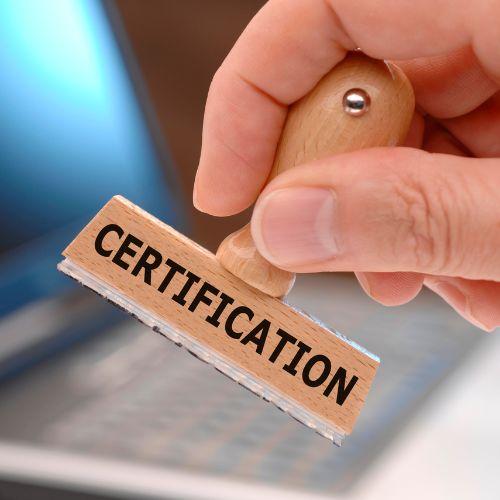Understanding Certificate Apostille in India

As our world continues to become more interdependent, cross-border recognition of legal documents has become essential. Individuals seeking educational, professional or personal purposes often require authenticating certificates for use overseas - this is where certificate apostille comes in; such certification serves as a validation mechanism so documents may be accepted abroad - this article explores its significance, process and key considerations here in India.
What Is Apostille Certificate?
Certificate apostille is an authentication or legalization
process of public documents such as educational degrees, birth and marriage
certificates for international use. It follows a standard certification
procedure agreed upon among members of the Hague Apostille Convention of 1961;
thus eliminating further authentication processes for legalizing international
recognition documents.
Importance of Certificate Apostille
Certificate apostille was designed to streamline document
legalization processes for international use, making transactions and
interactions much smoother on an international scale. Without this
certification, documents issued in one country may not be recognized in
another. This can present serious hurdles when applying for jobs, education or
residency overseas. To facilitate smoother global interactions apostille
certification ensures documents issued are universally recognized across member
countries of Hague Convention; helping individuals secure employment or
residency abroad more smoothly.
Process of Apostille in India
India's Ministry of External Affairs (MEA) is responsible for issuing Apostille certificates. Typically, this process entails three steps.
Document Verification: Prior to initiating an apostille process, any documents in question must first be verified by their issuing authorities. Educational certificates require verification by either an educational board or university while birth, marriage and other legal documents need to be authenticated by respective bodies.
Submit Documents to MEA for Apostille Certification: Once documents have been verified and authenticated, they should be presented for certification with MEA for apostille stamp affixing. MEA verifies their authenticity before applying an apostille sticker or stamp to each document submitted for certification.
Apostille Sticker/Stamp: After verification, MEA issues an Apostille Sticker/Stamp to authenticate documents for international use. This certifies their authenticity by listing essential details such as country of issuer, signatory name, and the date of issuer.
Finalization: Once stamped by MEA, documents become legally
valid to use across member countries of Hague Convention; however it should be
remembered that certain nations may impose additional requirements or require
further legalization depending on their local regulations.
Key Considerations in Certificate Apostille
While apostille legalization simplifies document legalization, individuals should remain mindful of a few key considerations before beginning this process:
Eligibility Requirements for Apostille Certification: Not all documents qualify for an apostille certificate, with government issued documents or recognized institutions usually being eligible while privately issued ones may require further review and validation processes.
Validity Period: An Apostille certification does not have an expiration date; however, depending on its issuing authority's regulations it could vary over time.
Country-Specific Requirements: Despite apostille certification being widely acknowledged, certain countries may impose additional legalization steps or have specific requirements that need to be fulfilled before using documents with this certification in their country of use. It's therefore crucial that research be performed into this aspect prior to proceeding with document processing in that location.
Service Providers: While individuals can submit documents directly to MEA for certification of an apostille stamp, many opt instead to utilize authorized agencies as service providers like apostille services in Bangalore or any other cities, to assist with document verification, submission, and other logistical aspects associated with an apostille process. These agencies often also offer assistance with document editing/submission.
Conclusion
Certificate apostille plays an essential part in
international transactions and interactions by providing an international
legalization system that adheres to standard methods. India's Ministry of
External Affairs serves as its central authority for legalizing documents
issued from India internationally, so their recipients recognize them abroad
more easily. By comprehending its significance, process, and key considerations
associated with certificate apostille, individuals can better navigate
international document authentication more confidently allowing them to pursue
opportunities across borders with greater ease.
Post Your Ad Here
Comments